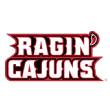Two years ago, the 10-team Sun Belt Conference broke into two divisions. This was a semi-pointless exercise considering each team plays eight of nine conference opponents every year, which nearly ruins the point of an inter-division rotation. It was also a bit unfair to the teams in the Sun Belt East — the five teams in that division have produced, per SP+, 10 of the 12 best teams in the history of the conference. Divisions are an unnecessary relic anyway, and unbalanced divisions are unfair to teams in the heavy division.
Maybe this is the year the West achieves balance. Granted, it might have the three worst teams in the Sun Belt, but it also has two true conference title contenders: Arkansas State is seasoned and deep after one of the most trying years imaginable, and after producing its best team ever, Louisiana might be in position to one-up itself.
Let’s take a gander at what the West has to offer.
Jump to: Texas State | South Alabama | UL Monroe
Arkansas State | Louisiana

Texas State
Head coach: Jake Spavital (3-9, second year)
2019: 3-9 (2-6 in Sun Belt), 118th in SP+
2020 projection: 3-9 (2-6), 123rd
Top returning players: RB/WR Caleb Twyford, WR Trevis Graham Jr., CB Jarron Morris, NT Nico Ezidore, RG Tate Heitmeier
Like UTSA, Charlotte, Old Dominion, South Alabama and others, we use the “P” word a lot when talking about Texas State: potential. The fifth-largest university in Texas is located right off I-35, midway between San Antonio and Austin, with an endless supply of overlooked three-star recruits within driving distance.
That we’ve been using the “P” word to talk about these programs for a while, though, suggests that potential isn’t everything. You also need the “S” word: support.
After a solid FCS rise in the 2000s — Texas State reached the playoff semifinals in 2005 and won the salty Southland Conference again in 2008 — the Bobcats made the jump to FBS in 2012 and won a combined 13 games in 2013-14. But they’ve won only 13 games since. Dennis Franchione retired after a 3-9 campaign in 2015, and Everett Withers went just 7-28 over the following three seasons. Withers both performed poorly and got almost no AD support. Not a great combination.
It will probably take a while for us to figure out if Spavital can do any better. He was distinctly average in his first season — Texas State went 3-9 with a No. 118 SP+ ranking last year, which means he basically maintained the low cruising altitude that he inherited — but he smashed the reset button when the season ended. He let offensive coordinator Bob Stitt go (Spavital, the former Texas A&M and West Virginia OC, will be calling the plays himself this fall) and signed a boatload of transfers of both the Power 5 and juco varieties. He also lost most of his defensive back eight. You’d prefer decent continuity heading into Year 2; Spav and his Bobcats will see very little of that.
That doesn’t have to be a bad thing, of course. Cycling out of a bad roster doesn’t have to mean further doom. But it does suggest that even if Spav ends up succeeding, it might take him another year or two.
The obstacles are bountiful, but here are the best things the Bobcats will have going for them in 2020:
1. Continuity in the passing game. QB Tyler Vitt returns — if he can beat out Memphis transfer Brady McBride, anyway — and most of last season’s receiving corps returns, too. That includes at least one efficient option (junior Trevis Graham Jr.) and one big-play threat (Javen Banks).
2. Culture installation. The defense is a blank slate — seven of last season’s top eight linebackers and four of six defensive backs are gone — which means competition for every spot and plenty of Spavital’s own recruits invading the two-deep.
3. The schedule. It features five opponents projected 109th or worse in SP+, plus home opportunities against SMU and Ohio in nonconference play. Even while projecting the Bobcats 123rd, SP+ gives them a 19% chance of reaching 5-7 or better. If the offense finds traction, a dark-horse bowl run is possible.
Odds are, this is another in a long series of transition years, but that’s at least a little bit of positive spin, right?

South Alabama
Head coach: Steve Campbell (5-19, third year)
2019: 2-10 (1-7 in Sun Belt), 122nd in SP+
2020 projection: 4-8 (3-5), 119th
Top returning players: WR Jalen Tolbert, C Brian Anderson, WR Kawaan Baker, LB Riley Cole, S Keith Gallmon
Throughout college football’s modern history, Mobile has been a constant destination for young players looking to prove themselves. Unfortunately for South Alabama, that’s not because of the Jaguars — it’s because of the postseason Senior Bowl, which the city has hosted since 1951. Since USA began fielding a football team in 2009, the Jaguars have found it difficult to make an impression.
With head coach Joey Jones leading the way, the Jags won at least six games in three of their first five FBS seasons, bowling twice in the process. But they never won more than six, and after a 4-8 campaign in 2017, Jones was replaced by Central Arkansas’ Steve Campbell.
Campbell has won big at the Division II, juco and FCS levels and knows the region as well as anyone. His hire made a ton of sense, but it hasn’t borne fruit just yet. USA averaged 5.2 wins per year over Jones’ last five seasons but has won just five in two under Campbell.
If you squint, though, you can see the makings of a foundation — quite a few freshmen and sophomores made an impact last season. That list begins with sophomore-to-be Desmond Trotter. The quarterback from Birmingham took over late in the season and thrived, producing a 151.8 passer rating, rushing for at least 4 yards on 58% of his carries (not including sacks), and improving USA’s scoring average against FBS teams from 11.4 points per game over the first seven to 26 over the last four.
Trotter struck up an intriguing rapport with receiver Jalen Tolbert (a junior this fall) and tight end Brandon Crum (sophomore) last season. Add to that mix leading receiver Kawaan Baker and a couple of interesting sophomore running backs (Carlos Davis and Jared Wilson), and you might have the makings of a fun offense, especially when you take an experienced line into account.
It’s harder to get excited about the defense, but it did improve last season, from 123rd to 101st in defensive SP+. The linebacking corps, led by senior Riley Cole (nine tackles for loss, three sacks), is deep and experienced, but the Jags have to replace two productive defensive ends (Jeffery Whatley and Rocel McWilliams) and their top two cornerbacks (Travis Reed and Jalen Thompson). And aside from maybe end Maurice Strong Jr., there aren’t many sophomores to get excited about.
SP+ isn’t built to comprehend Trotter’s late-season emergence and therefore doesn’t think highly of the USA offense. It projects a record of 4-8 or so and gives the Jaguars only about a 14% chance of bowling. I would give them a better shot, but a schedule that features road trips to Florida, Louisiana, Southern Miss, Arkansas State and Georgia Southern will keep the ceiling for wins low. Still, they’ll break in the pretty, new Hancock Whitney Stadium this fall, and they’ve got a pretty, new quarterback to build around for a couple of more years. We should see Campbell’s vision for the program in 2020, if nothing else.

UL Monroe
Head coach: Matt Viator (19-29, fifth year)
2019: 5-7 (4-4 in Sun Belt), 109th in SP+
2020 projection: 4-8 (2-6), 118th
Top returning players: CB Corey Straughter, DE Kerry Starks, RB Josh Johnson, LB Rashaad Harding, RG T.J. Fiailoa
ULM has been to one bowl in its history. Viator has come about as close as one can come to doubling that number without actually pulling it off.
* In 2017, the Warhawks fielded one of the best offenses in school history but also had one of their worst defenses. They upset Appalachian State and won at Louisiana (which prevented the Ragin’ Cajuns from reaching bowl eligibility) but lost games while scoring 29, 37 and 50 points and, with the requisite brutal nonconference schedule (at Memphis, at Auburn, at FSU), finished 4-8.
* In 2018, the offense slumped a bit, and the defense allowed 54 points per game in losses, but a four-game win streak put them at 6-4. In need of one more win to guarantee a bowl, they fell to Louisiana in the last second and finished 6-6. No bowl called the Warhawks’ name.
* The 2019 season might have been the most heartbreaking. They started the year by missing a PAT in overtime to drop a 45-44 decision to Florida State. In conference play, they blew a 21-3 lead against Arkansas State, then overcame a 10-point deficit in the same game before falling 48-41. And finally, they lost in the last minute to the Cajuns once more to finish 5-7.
Quarterback Caleb Evans was one of ULM’s best offensive players ever, throwing for nearly 9,000 yards and rushing for 2,000 in three years as a starter. He was at the helm of offenses that ranked 42nd (2017) and 43rd (2018) in offensive SP+. But he never bowled. And now Evans, offensive coordinator Matt Kubik, last year’s top two receivers and four starting offensive linemen are all gone. Viator — a Louisiana coach in the extreme, with coaching stints at four Louisiana high schools, McNeese State and now ULM — seemed to be building toward a 2019 breakthrough, and it almost happened. But it didn’t. And now the boulder’s pretty far back down the hill.
It’s not all the way down the hill, though. Viator, who evidently will be calling plays this season, still can potentially lean on ultra-efficient running back Josh Johnson, and receiver Perry Carter Jr. showed massive potential late in the year (last five games: 10 catches, 247 yards). He could be perfect in the slot.
Defensively, there are two pieces of good news: 1) The run defense almost literally can’t get worse, so the loss of four of last season’s top six linemen might not matter all that much. 2) Corey Straughter is one of the best cornerbacks in the Group of 5. The secondary as a whole could be excellent, though I guess that only matters if opponents have to pass.
If the Warhawks sink to 118th as projected, there aren’t many likely wins on the schedule. One of these two units has to overachieve by quite a bit even to get back to 5-7 or so, and the schedule, with road trips to Georgia, Arkansas, Liberty, Troy and Arkansas State, is as unforgiving as ever.

Arkansas State
Head coach: Blake Anderson (47-30, seventh year)
2019: 8-5 (5-3 in Sun Belt), 76th in SP+
2020 projection: 6-6 (5-3), 86th
Top returning players: QB Layne Hatcher, DE William Bradley-King, C Jacob Still, CB Nathan Page, WR Jonathan Adams Jr.
Nobody ever deserved a bowl win celebration as much as Arkansas State did in 2019.
The Red Wolves’ 34-26 win over FIU in the Camellia Bowl capped one of the most emotionally grueling seasons you’ll ever see. In August, head coach Blake Anderson’s wife, Wendy, died after a long, public battle with cancer. He took a brief leave of absence but surprised the team at a meeting before their Week 2 game at UNLV. The players erupted, then demolished the Rebels. The next week at Georgia, UGA fans gave an incredible show of solidarity in the form of a “pink out.”
ASU came up with impossible reserves of resilience, both in “football team” and “human being” ways. On the field, the Red Wolves were dealing with a run of injuries: Starting quarterback Logan Bonner played only four games due to a hand injury, and the defensive depth chart was basically a series of explosions. But despite this, the Red Wolves improved as the season progressed. After a 3-4 start, they finished 5-1.
Anderson’s six Arkansas State teams have all won between seven and nine games and ranked between 66th and 76th in SP+, and 2019’s was no different. But to attain that level of normalcy under these circumstances is one of the most amazing football achievements I can think of. And the Red Wolves pulled it off while getting constant lessons about the difference between real life and this game we enjoy.
Now they might get to enjoy one of the deepest and most stable depth charts around.
* Both Bonner and his incredible replacement, Layne Hatcher, are scheduled to return. A former Alabama walk-on, Hatcher thrived with his unexpected opportunity, completing 66% of his passes for 2,946 yards in just 10 games as a redshirt freshman.
* Incredible wideout Omar Bayless (1,653 yards, 17 TDs) is gone, but Jonathan Adams Jr. (851 yards, 5 TDs) is back, and fellow senior Brandon Bowling has massive efficiency potential. Plus, every tight end and nearly every running back (including starter Marcel Murray) returns.
* The offensive line is scheduled to return eight players with a combined 128 career starts. That includes four starters who earned at least honorable-mention all-conference honors last season.
* A host of all-conference contenders returns on defense, including end William Bradley-King, tackle Forrest Merrill, linebacker Caleb Bonner, safety Antonio Fletcher and corner Jarius Reimonenq. Anderson supplemented the two-deep with a batch of jucos, as he is wont to do, and the front six should be excellent. The secondary, with last year’s top four tacklers gone, might need some help.
The schedule features games against four teams projected 51st or better, all on the road. There are plenty of softer games, too, but ASU might not have much margin for error in getting back to that seven-to-nine-win comfort zone. After all we’ve seen, though, we figure Anderson and his charges will be up for the challenge.

Louisiana
Head coach: Billy Napier (18-10, third year)
2019: 11-3 (7-1 in Sun Belt), 32nd in SP+
2020 projection: 9-3 (6-2), 51st
Top returning players: QB Levi Lewis, RB Elijah Mitchell, WR Jamal Bell, CB Eric Garror, LB Joe Dillon
After a while, you get lumped into a category as a coach. Napier has been in a few different categories at this point, and he’s still only 40 years old. At 29, he was named Dabo Swinney’s first offensive coordinator at Clemson — a hotshot young assistant if ever one existed. When that became a little too much too soon, he landed at Alabama as an analyst (a category to itself at this point) for a year, then followed Bama offensive coordinator Jim McElwain to Colorado State. Within a year, he was back in Tuscaloosa as a position coach. Still only 37, he became Todd Graham’s offensive coordinator at Arizona State for a year.
After a couple of different bites at the “hotshot assistant” apple, he moved on to “mid-major up-and-comer.” And after two solid years in charge of Louisiana’s Ragin’ Cajuns, his name has come up in a few different power-program coaching searches.
Labels can fail us, however, because they don’t really tell us about degrees. Few “mid-major up-and-comers” have aced a test the way Napier has so far. He inherited from Mark Hudspeth a program that had fallen off a bit after four straight nine-win seasons, getting dinged by the NCAA, winning 15 games in three years, and ranking just 118th in SP+ in 2017.
In Napier’s first season, UL improved to 95th, weathered a 1-3 start, and finished the regular season on a 4-1 stretch to win the inaugural Sun Belt West title. That’s pretty normal up-and-comer stuff. But in 2019, the team went to a level it hadn’t ever been before. The run game was one of the best in the country, the Cajuns scored at least 27 points in all but one game, and they won double-digit games for the first time at the FBS level. Final SP+ ranking: 32nd. Only two Sun Belt teams have ever ranked higher: the last two App State teams. Poor timing for the Cajuns there.
This might have all been leading to 2020. While App State is working with its third head coach in three seasons, Napier returns to UL, as do quarterback Levi Lewis (3,050 passing yards) and two running backs (Elijah Mitchell and Trey Ragas) who combined for 1,967 rushing yards and 27 touchdowns. Of the 21 defenders to record double-digit tackles last season, 16 return, including a couple of dynamite attacking outside linebackers in Joe Dillon and Kris Moncrief and a couple of ball-hawking safeties in Kam Pedescleaux and Bralen Trahan. Oh, yeah, and Napier has signed two of the best recruiting classes you’ll ever see in the Sun Belt these past two offseasons. The upside here is immense.
The schedule is mostly friendly. SP+ projects the Cajuns as a double-digit favorite in 10 of 12 games and as a merely one-score underdog in the two others (at App State, at Missouri).
If Napier can pull off another huge season, then “mid-major up-and-comer” no longer fits the bill. We might need to move on to “best mid-major up-and-comer since Urban Meyer.”
